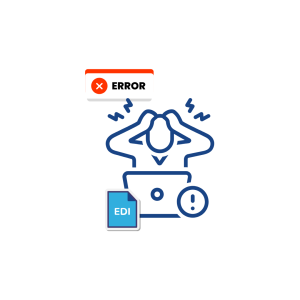Introduction
The global business landscape is rapidly evolving, and enterprises are constantly seeking innovative ways to stay ahead of the curve. One area that has witnessed significant transformation is supply chain management. With the advent of advanced technologies like artificial intelligence (AI) and machine learning (ML), businesses now have access to powerful tools that can revolutionize their supply chain operations. Let us explore the role of supply chain analytics and how it can drive optimization, efficiency, and profitability in businesses.
What is Supply Chain Analytics?
In its essence, supply chain analytics is the practice of using data analysis techniques to derive insights and make informed decisions about the various components of the supply chain. By leveraging advanced algorithms and machine learning techniques, businesses can extract valuable insights from vast supply chain data. These insights can be used to optimize processes, identify inefficiencies, and drive innovation.
Four Areas of Supply Chain Analytics
Supply chain analytics encompasses four key areas that help businesses gain a comprehensive understanding of their supply chain operations
1. Descriptive Analytics
This form of analytics involves analyzing historical data to identify patterns and trends. Businesses can gain visibility into their supply chain processes by leveraging descriptive analytics and making data-driven decisions
2. Predictive Analytics
Predictive analytics utilizes statistical modeling and regression analysis to forecast future trends and outcomes. By analyzing historical data, businesses can predict demand, inventory levels, and other critical factors, enabling them to proactively address potential challenges.
3. Prescriptive Analytics
Prescriptive analytics goes a step further by recommending actions based on the insights derived from descriptive and predictive analytics. This form of analytics helps businesses optimize their supply chain operations by suggesting the best course of action to achieve desired outcomes.
4. Cognitive Analytics
Cognitive analytics involves the use of AI-driven systems to analyze unstructured data such as customer feedback, social media posts, and sensor data. By leveraging natural language processing and machine learning algorithms, businesses can gain valuable insights into customer preferences, market trends, and other relevant factors.
Why Businesses Should Invest in Supply Chain Analytics?
In today’s hyper-competitive business landscape, organizations cannot afford to overlook the potential of supply chain analytics. Here are some compelling reasons why businesses should invest in this transformative technology:
1. Enhanced Efficiency
Supply chain analytics enables businesses to optimize their operations by identifying bottlenecks, streamlining processes, and reducing costs. By leveraging data-driven insights, businesses can make informed decisions that drive efficiency and productivity.
2. Improved Decision-Making
With access to accurate and timely data, businesses can make better decisions that are supported by evidence. Supply chain analytics provides businesses with actionable insights that can guide strategic planning, inventory management, and risk mitigation.
3. Proactive Risk Management
By leveraging predictive analytics, businesses can identify potential risks and disruptions in their supply chain. This allows them to take proactive measures to mitigate these risks, ensuring smooth operations and customer satisfaction.
4. Cost Savings
It helps businesses optimize their inventory levels, reduce waste, and minimize overstocking or stockouts. By optimizing their supply chain processes, businesses can achieve significant cost savings and improve their bottom line.
5. Competitive Advantage
Adopting supply chain analytics provides businesses with a competitive edge in the market. By leveraging advanced technologies, businesses can enhance customer experiences, improve service levels, and gain a reputation for operational excellence.
Benefits of Supply Chain Analytics
1. Demand Forecasting
By leveraging predictive analytics, businesses can accurately forecast demand, enabling them to optimize their inventory levels and improve customer satisfaction.
2. Inventory Optimization
It helps businesses optimize their inventory levels by identifying demand patterns, seasonality, and other factors. This ensures that businesses have the right amount of inventory at the right time, minimizing costs and maximizing efficiency.
3. Route Optimization
By analyzing historical data and real-time information, businesses can optimize their logistics operations, leading to reduced transportation costs, improved delivery times, and enhanced customer satisfaction.
4. Risk Management
It enables businesses to identify potential risks and disruptions in their supply chain. By taking proactive measures, businesses can minimize the impact of these risks and ensure business continuity.
5. Supplier Management
By leveraging cognitive analytics, businesses can gain insights into supplier performance, quality, and reliability. This helps businesses make informed decisions when selecting and managing suppliers, leading to improved collaboration and cost savings.
Conclusion
Supply chain analytics is a game-changer for businesses looking to optimize their supply chain operations. By leveraging advanced data analysis techniques, businesses can gain valuable insights that drive efficiency, improve decision-making, and enhance customer satisfaction. The benefits of supply chain analytics are far-reaching, providing businesses with a competitive advantage in the dynamic global marketplace.
To harness the power of supply chain analytics, businesses should partner with experienced providers like Commport Communications. With our expertise in supply chain, we can help businesses unlock the full potential of their supply chain, drive innovation, and achieve sustainable growth in today’s digital era. Embrace the power of supply chain analytics and embark on a transformative journey towards operational excellence and success.
Top 30 Supply Chain KPIs to Track
This complete list of KPIs that will help you measure the performance of your supply chain
Download NowCommport Business Analytics Solution
Frequently Asked Questions
AI can help in automating supply chain processes by taking over repetitive tasks such as order processing, inventory tracking, and shipment scheduling. This automation reduces errors, speeds up operations, and allows human workers to focus on more strategic activities.
AI and machine learning contribute to supply chain sustainability by optimizing routes, reducing energy consumption, and minimizing waste. They can also analyze environmental impact data to help companies make more sustainable sourcing and production decisions.
AI-driven predictive analytics impact inventory management by optimizing stock levels and reducing waste. Machine learning models analyze sales data, market trends, and external factors to forecast demand more accurately, helping businesses maintain optimal inventory levels.
Yes, AI and machine learning can significantly improve supply chain risk management. They can predict potential disruptions by analyzing data from various sources, such as weather reports, geopolitical events, and market trends, allowing companies to take proactive measures.
Machine learning enhances demand forecasting by analyzing historical data and identifying trends that traditional methods might miss. It continuously learns from new data, refining its predictions over time, which leads to more accurate forecasts and better inventory management.





